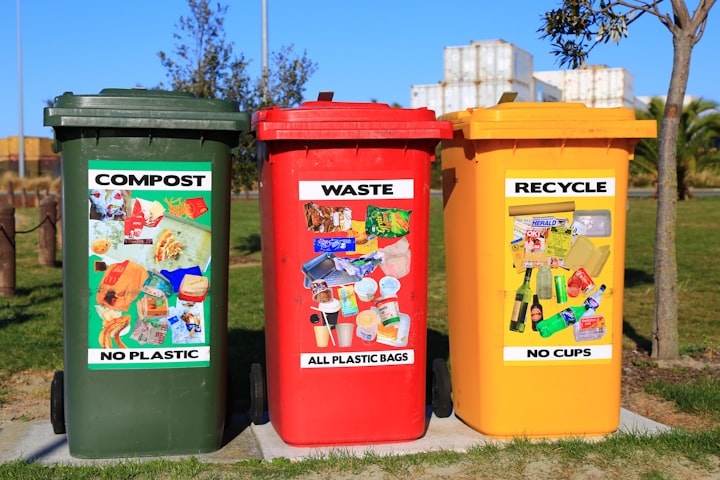Sustainable Waste Management
Strategies for Reducing Waste and Promoting Recycling in the Workplace

Sustainable Waste Management: Strategies for Reducing Waste and Promoting Recycling in the Workplace
In today's world, businesses are under increasing pressure to adopt environmentally friendly practices. One of the most significant areas where companies can make a positive impact is through sustainable waste management. Effective waste management strategies can help reduce waste and promote recycling, ultimately reducing the impact of waste on the environment. This article will discuss the importance of sustainable waste management and provide strategies that businesses can adopt to promote sustainability in the workplace.
The Importance of Sustainable Waste Management
Waste management is crucial to preserving the environment, protecting human health, and conserving natural resources. The global waste management market is projected to reach $2 trillion by 2027, highlighting the importance of this industry. In the workplace, proper waste management can help businesses reduce costs, increase efficiency, and promote sustainability. Sustainable waste management can also help businesses comply with environmental regulations, prevent environmental pollution, and reduce their carbon footprint.
Strategies for Sustainable Waste Management in the Workplace
Reduce Waste
The first step towards sustainable waste management is to reduce waste. Businesses can do this by identifying areas where waste is generated and implementing measures to reduce waste production. For example, companies can encourage employees to use digital tools instead of paper, implement double-sided printing, and purchase products with minimal packaging. Additionally, businesses can implement energy-efficient practices such as turning off lights and electronics when not in use and replacing traditional light bulbs with energy-saving bulbs.
Recycle
Recycling is a crucial aspect of sustainable waste management. Recycling helps reduce the amount of waste sent to landfills, conserves natural resources, and saves energy. Businesses can promote recycling by providing recycling bins for employees to use and educating employees on the importance of recycling. Companies can also work with waste management companies that specialize in recycling and use recycled products in their operations.
Composting
Composting is another effective way to manage waste sustainably. Composting can help reduce greenhouse gas emissions, improve soil quality, and reduce waste sent to landfills. Businesses can implement composting programs by providing employees with compost bins, educating employees on what materials can be composted, and partnering with local composting facilities.
Partner with Local Waste Management Companies
Businesses can partner with local waste management companies to promote sustainable waste management. These companies can provide recycling and composting services and work with businesses to develop waste reduction programs. Working with local waste management companies can also help businesses comply with local regulations and reduce the costs associated with waste disposal.
Implement a Waste Management Plan
Finally, businesses can implement a waste management plan that outlines their waste reduction, recycling, and composting strategies. A waste management plan should identify the types of waste generated, the methods used to manage waste, and the goals of the waste reduction program. A well-designed waste management plan can help businesses monitor their progress towards sustainability goals and make adjustments to their waste management strategies as needed.
Conclusion
In conclusion, sustainable waste management is crucial to promoting environmental sustainability in the workplace. By reducing waste, promoting recycling and composting, partnering with local waste management companies, and implementing a waste management plan, businesses can make a positive impact on the environment and promote sustainability. Adopting sustainable waste management practices not only benefits the environment but also helps businesses reduce costs, increase efficiency, and comply with environmental regulations. As businesses continue to embrace sustainability, sustainable waste management will play a critical role in their efforts to promote a sustainable future.
“Disclosure: Some of the links in this article may contain affiliate links, which means that if you click on one of the links, we may receive a small commission. This is at no extra cost to you and helps to support us”
About the Creator
HSE Insider
Join the HSE community and take your safety knowledge to the next level with “HSE Insider”
Follow us on social media and be sure to share with your network. Together, we can make the world a safer place.
Support HSE Insider today!






Comments
There are no comments for this story
Be the first to respond and start the conversation.